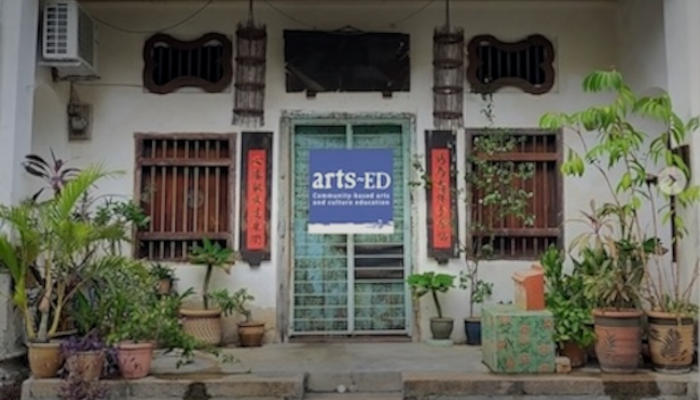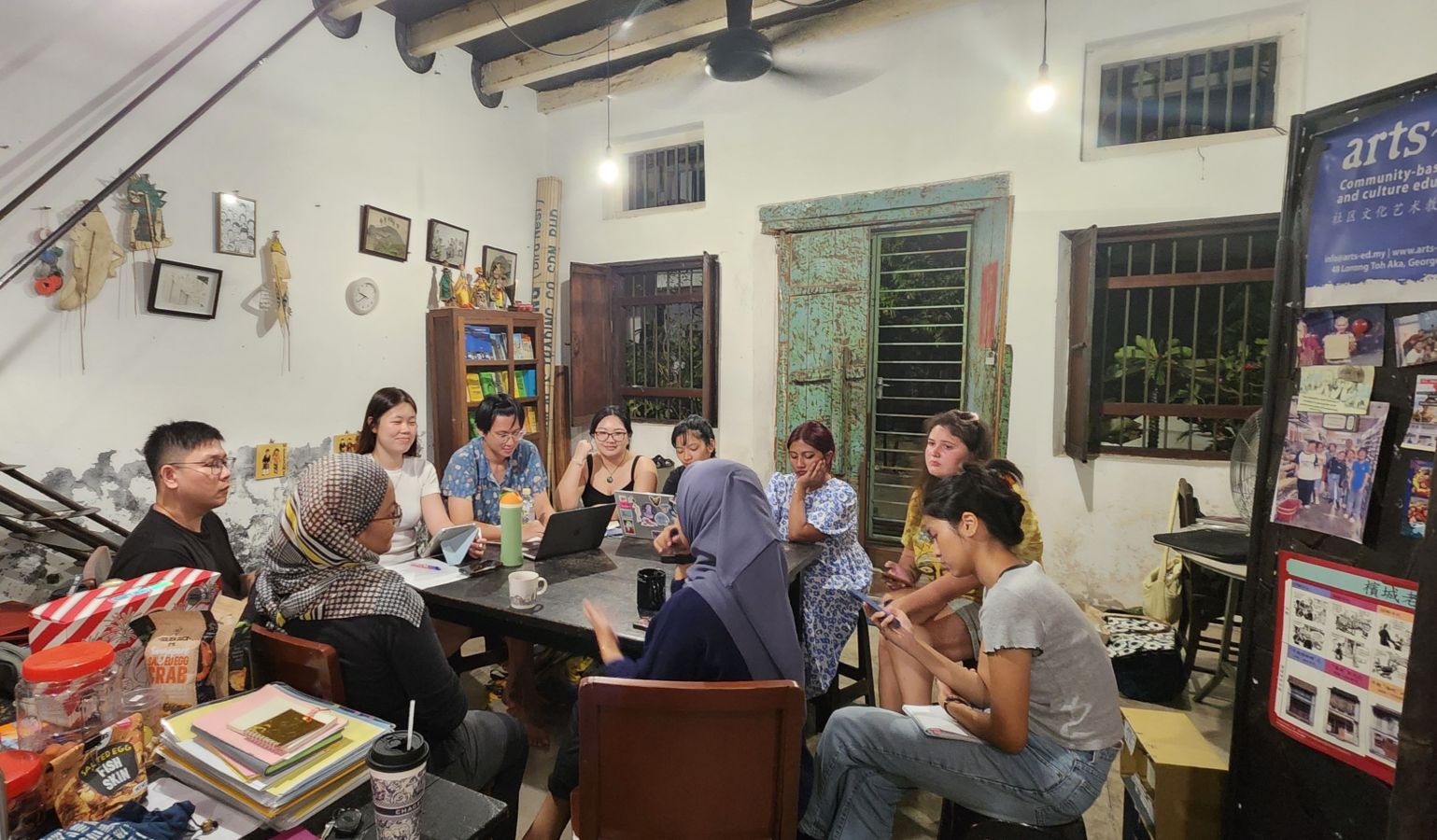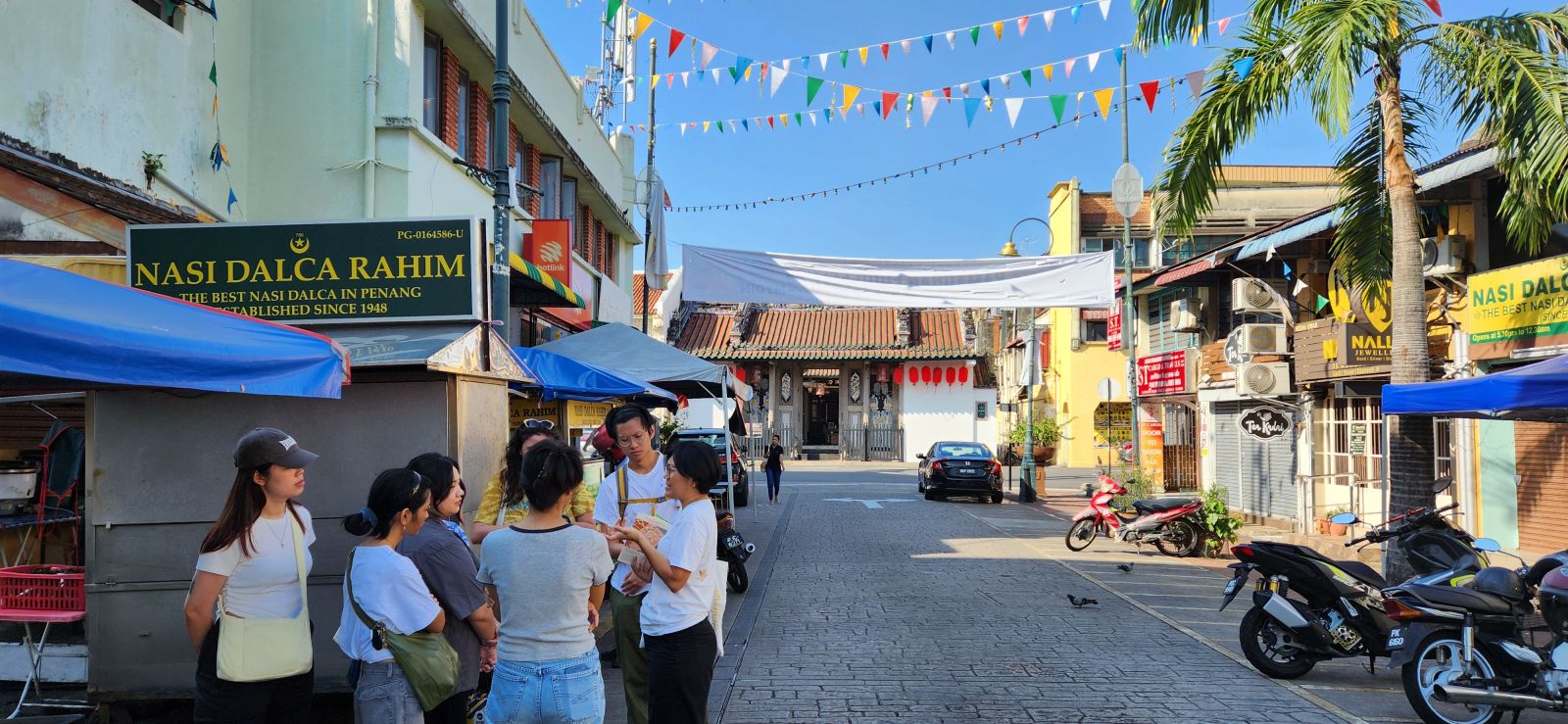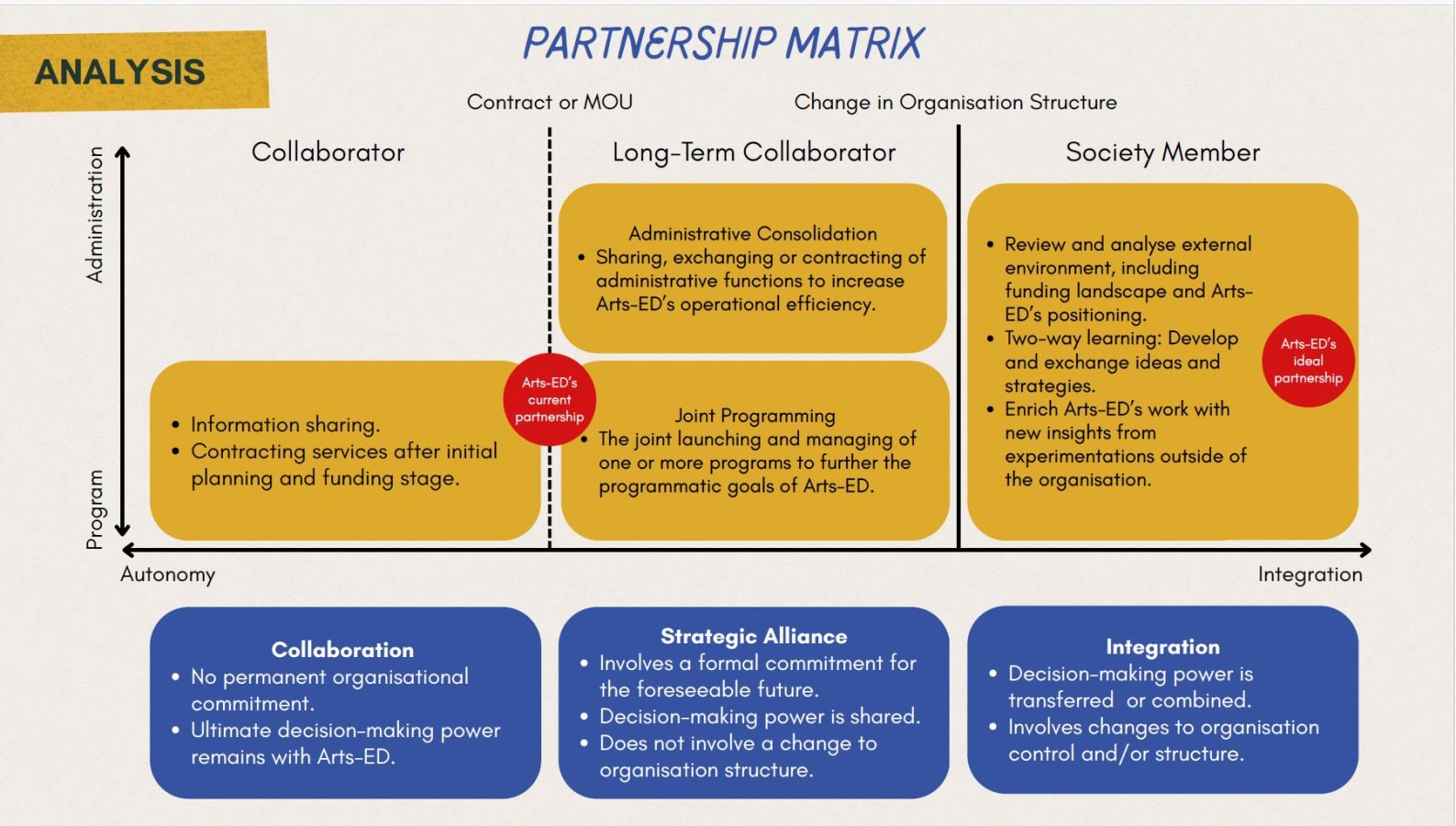
LASALLE X Arts-ED: Community Building
Project Gallery

Interviews with stakeholders were the primary method used in data collection.
BAAM team interviewing Arts-ED collaborators in George Town, Penang

Introduction to George Town to better understand the context and methods of Arts-ED's work.
Students on a walkabout through George Town, led by Arts-ED.

Arts-ED’s Partnership Position based on the Partnership Matrix
Partnership Matrix adapted from David La Piana, cited in Tschirhart and Bielefeld (2012)
Context and problems
Arts-ED is a non-profit organisation based in Penang, Malaysia which specialises in innovative community-based arts and culture education in rural and urban communities. Established in 1999, the organization’s programmes focus on arts, culture and heritage, and utilises both creative and critical pedagogy such as cultural mapping, documentation, promotion and celebration of local culture by community participants. Artists, educators, and cultural workers have always been key team members in the implementation of Arts-ED’s various arts and cultural education programmes in the community.
Arts-ED engaged LASALLE students to produce a strategy that can explore how the organisation can leverage the existing programmes to create an environment in which collaborators find meaning in long-term partnerships. Focusing on a specific community-based arts education programme for youth, the strategy should be developed to effectively engage stakeholders, build capacity and retain artists, educators, and cultural workers as Arts-ED’s collaborators.
Testimonials
The Art Project carried out by Arts-ED in collaboration with the students and lecturer from LASALLE BA (Hons) Arts Management was timely and meaningful, especially as Arts-ED is currently reassessing and recalibrating our impact and relationships with collaborators in the field of community-based arts and culture.
We are truly impressed by the dedication shown by the students, as well as by Sunitha, their lecturer, in guiding them throughout the project. Despite the challenges of working remotely, the team went beyond expectations—not only conducting their research online but also making the effort to travel to Penang to deepen their understanding through in-person engagement with the Arts-ED team and our collaborators. This level of commitment reflects a strong desire to learn and grow.
The findings and recommendations from their research have contributed valuable insights to our ongoing internal reflections. They are helping us consider how we might strengthen long-term collaborations and better nurture meaningful relationships within our network.
- Chen Yoke Pin, Senior Manager
Team Members and Roles
Janyka Caganap (Researcher, Interviewer, Report lead writer)
Jermaine Chong (Researcher, Interviewer, Designer)
Jenise Lee (Researcher, Interviewer, Partner liaison)
Nurul Syazwani Binte Mohamad Shahril (Researcher, Interviewer, Design lead)
Colin Tan (Researcher, Interviewer, Survey analysis lead)
Eva Rose Teal (Researcher, Interviewer, Co-writer)
Key Goals and Objectives
Main research question: "What motivates collaborators towork with a community-engaged arts organisation long-term?”
Sub questions:
What benefits come from working with Arts-ED?
Is financial stability of an organisation a factor for collaborators when considering long-term partnerships?
How much autonomy can collaborators have?
What is the capacity of Arts-ED to support collaborators in the long term?
Project Methodologies
Desk research
SWOT
Interviews
Partnership matrix analysis
Project Deliverables and Outputs
1. Findings from interviews with nine collaborators revealed the following:
- Benefits derived from working with Arts-ED include professional development, networking and personal growth.
- Collaborators are motivated by a combination of personal reasons, alignment with Arts-ED’s values, the opportunity for professional development, and the chance to contribute to communities.
- Practical factors such as time and financial constraints play a lesser role but are not to be ignored as factors for some collaborators capacity for longer term relationships
- There is a strong sense of collaboration and shared responsibility in shaping projects amongst Arts-ED and collaborators with shared decision-making on projects.
2. Review of the concept of "long-term": A continuous and evolving relationship between Arts-ED and the collaborator, in which there is mutual benefit and a shared value in Arts-ED’s work and growth.
3. Partnership Matrix Analysis
A structured analysis of Arts-ED’s relationships with collaborators was conducted using an adapted partnership matrix framework by David La Piana. The partnership matrix as a strategic tool fornon-profit organisations to understand and strategise their partnerships by evaluating the nature and structure of their relationships with key partners (Tschirhart and Bielefeld 2012, 365). The partnership matrix delineates 3 categories representing the increasing levels of partner integrationwith Arts-ED: Collaboration (low integration), Strategic Alliance (medium integration), and Integration (high integration).
The findings show that Arts-ED’s current relationship with the collaborator falls between collaboration and strategic alliance with a focus on programme-based engagement. As Arts-ED aims to cultivate a relationship with collaborators wherein they feel like invested stakeholders in both project and organisational decisions, this ideal relationship model reflects a move towards high integration within the partnership matrix, positioned between programme and administration involvement. This has implications on organisational structure and the formalising of relationships with collaborators. as more integrated partners.


